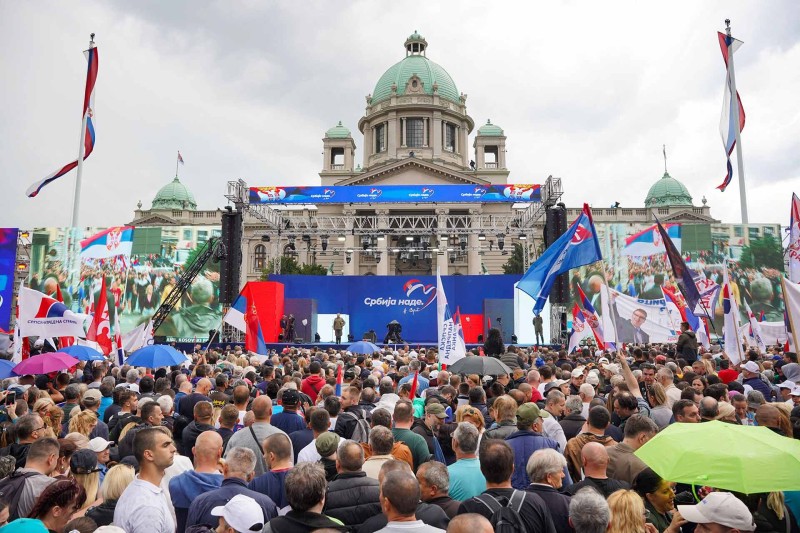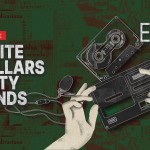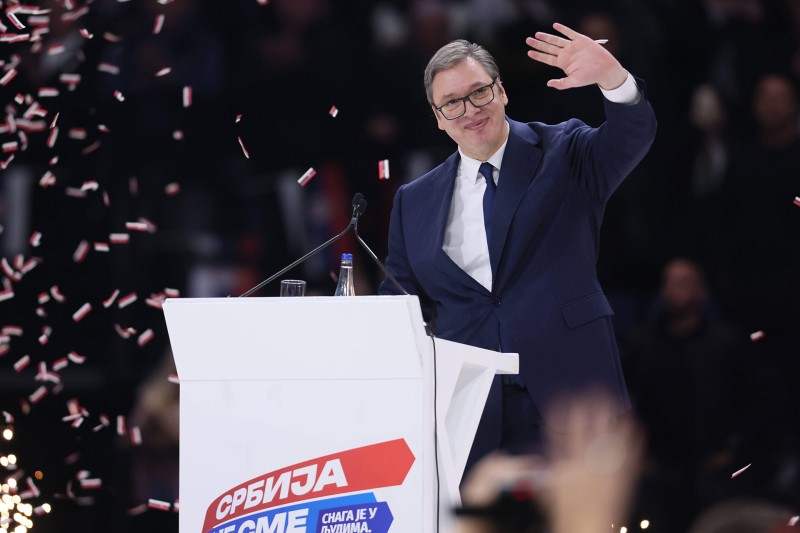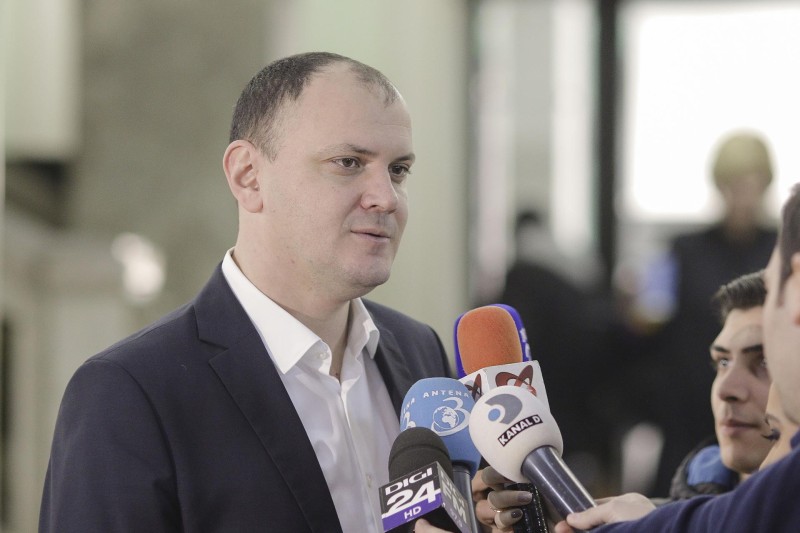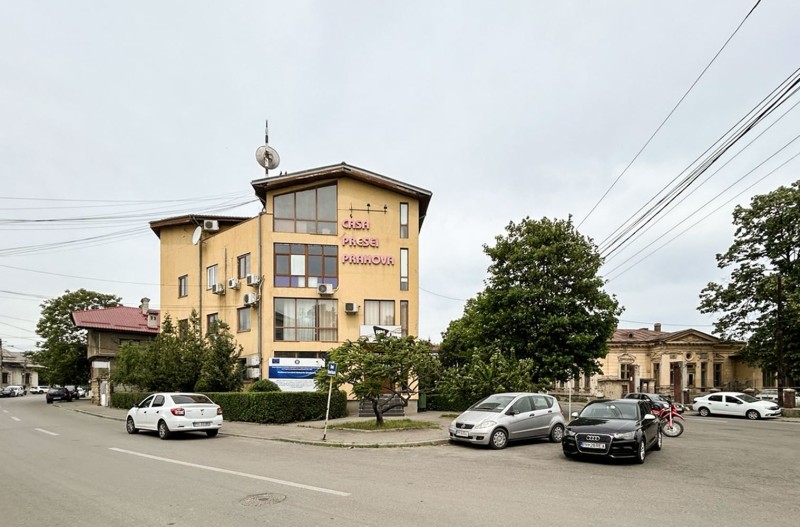Serbia’s ruling party is fond of a rousing slogan. Serbia Must Not Stop! was the campaign motto for parliamentary elections last December. Previous catch phrases have included Together We Can Do Everything! and For Our Children!
In power since 2012, the Serbian Progressive Party (SNS) regularly uses a variety of memorabilia – caps, pens, lighters – to convey its political messages.
But leaked customs data shared with OCCRP’s partner the Center for Investigative Journalism of Serbia (CINS) documents a particularly ambitious promo spending spree at the beginning of 2022, just before countrywide elections were officially announced.
The records show SNS importing more than a million items, from scarves, vests, and bags to ice scrapers, mugs, and back scratchers – the kind of products the party uses for its messaging.
Although the China-made promo material cost only $1.2 million, SNS paid almost twice as much to transport it to Serbia on three separate flights from Turkey, Uzbekistan, and China, with the latter making a stopover in Russia. In total, SNS paid $3.3 million for the shipment, according to the data. This is far more than SNS had ever paid for similar promotional items, according to its own financial statements.
The leaked records do not detail whether the material was branded prior to import. It is also not known if the items were intended for the 2022 election, although similar items were used on the campaign trail.
Serbian law requires parties to open special bank accounts for election spending and provide a detailed breakdown of costs in expense reports filed with the country’s anti-corruption agency. But because the cargo was delivered just before elections were announced, SNS was not required to declare the materials as an electoral expense in its campaign reports.
The party listed a similarly-priced purchase in its annual financial declarations, which require less detail, but did not name the exporter of the goods that was listed in the customs data.
The background of that company, the Romania-based Ridzone Creative SRL, raises further questions. The firm appears to primarily produce content for television, and payments from a Romanian political party to the company have been a subject of interest in an ongoing corruption case.
Reporters also found that Ridzone Creative’s owner was a shareholder in companies Romanian authorities alleged were controlled by Sebastian Ghiță – a Romanian businessman and former politician who has found sanctuary in Serbia in the face of court cases back home.
SNS and Ridzone Creative did not respond to reporters' queries about the transaction, while Ghiță could not be reached for comment.
Experts told OCCRP the findings raised doubts over what was delivered, who was paid, and the true purpose of the purchase.
Nemanja Nenadić from Transparency International’s Serbian branch said the case showed that despite official reports about the party’s campaign spending, “the public essentially doesn't have information about what exactly was the purpose of the most financially significant expense of the largest party.”
The cost of the goods, including the transport, raised the possibility there had been an overpayment, Nenadić added.
“According to your data, there is a suspicion that the goods were overpaid, and this may indicate that some other goods or services that are not listed in the financial report were actually paid through this payment,” he said.
Vladimir Tupanjac, a lawyer who previously worked for Serbia’s Agency for the Prevention of Corruption in the department for control of political activities, said the findings raised doubts about what had actually been imported, who had received payment, and whether the items were in fact used for campaign purposes despite not being declared as an election expense. He questioned why the agency had not dug deeper.
“The agency could, and should, have attempted to ascertain whether [the import] was indeed used for regular work or in a campaign,” he said.
The findings come as the party faces broader questions over its integrity.
In February, the European Parliament adopted a resolution calling for an international investigation into alleged irregularities reported during and after December 2023 parliamentary and local elections, in which SNS took another victory and was accused by watchdogs and opposition groups of election fraud.
Civil society groups have long warned the country is sliding towards autocracy under President Aleksandar Vučić, who led SNS for over a decade and remains the party’s de facto leader.
Where Did The Three Million Dollars Go?
Leaked records show flights carrying the SNS promotional materials arrived in Serbia between January 28 and February 11, 2022. The cost of the imports, including transportation, is listed in the data as the equivalent of $3.3 million.
Only a few days later on February 15, presidential, parliamentary, and some local elections, including in the city of Belgrade, were announced for April.
However, in post-election expense reports to Serbia’s anti-corruption agency, filed between May and July 2022, SNS made no mention of such a big spend on the kind of promotional materials that arrived in the shipments.
Transparency’s Nenadić pointed out that because the shipments arrived a few days before the start of the official campaign period, the party was only required to declare the expense in a regular annual report, which is less detailed than campaign financing expense forms.
“If their goal was for it not to be visible exactly what was paid and to whom, then importing advertising material before the election campaign was a good way to do it,” he said.
Across all elections held on April 3, the party declared having spent the equivalent of around $713,000 for promotional materials, which includes billboards and leaflets, and around just $41,200 for the kind of souvenirs that arrived in the shipments.
The big spend does however appear to have been declared in the separate annual financial report SNS filed to the anti-corruption agency in April 2023, which covered the party’s spending for the whole of the previous year. While the value of the purchase is nearly identical to what was reported in the customs data, the party makes no mention of Ridzone Creative, who had been named as the exporter.
(All political parties have to submit a financial report in April each year covering their transactions for the year before, but those declarations do not include the detailed expense breakdowns required by the post-election reports.)
According to the annual report, the party paid major Serbian transportation and logistic company Milšped $3.35 million for “costs of advertising material and publications.” The type of advertising material is described only as “other costs” and the payment is reported as part of the party’s “regular work” and not as election-related.
This cost accounts for two thirds of the total $4.3 million SNS spent that year on advertising material and publications. It is the single biggest promo spend the party has ever made, according to its own financial reports. Annual declarations dating back to 2012 show the largest previous total spend on advertising materials and publications amounted to around $1.6 million in 2020.
Milšped also appears in the leaked customs data as a “declarant” of the shipment, and was listed as providing storage for the materials during customs checks. The company did not respond to reporters' questions about the transaction, including whether Ridzone Creative was the original exporter.
In an audit of the party’s finances in 2022, the State Audit Institution (DRI) noted that SNS paid Milšped for transportation of goods from China, international cargo transit, storage, and domestic transportation costs. It listed February 11, 2022 as the date when import fees were calculated.
The report separately said auditors had found more than 24,500 vests in the party’s stock in December 2022, but did not mention any other examples of promotional material. In response to questions from reporters, the DRI referred back to its audit report and said that any documentation submitted as part of the reporting procedure was confidential.
When CINS asked Serbia’s anti-corruption agency whether it had investigated the payment to Milšped, they said they had reviewed the party’s annual financial report and did not find any irregularities.
“The review has determined that all expenses from the supplier "Milšped" were reflected in the report of the political entity, that they were paid from the current account of the political party, and that there were no discrepancies in the data presented in the political party's report with turnover per account,” the agency said.
Lawyer Tupanjac said the party’s declarations raised questions over whether they were trying to hide links in their supply chain.
"Such a high payment to Milšped, which is not normally involved in sales of promotional material but in transport, should have been an indicator for the agency to investigate in more detail. Such a reported expense may indicate that SNS wanted to conceal from whom they bought the material,” he told CINS.
He added that he could not recall any political party in Serbia importing promotional materials or other items from abroad in the past.
Ridzone Creative And The Romanian Businessman
Ridzone Creative appears to be an unlikely supplier of promotional goods. Since it was set up in 2015, the firm’s main field of work has been producing television programs, according to Romania’s business register.
Payments to the company have also been a subject of interest in a wide-ranging corruption case launched in 2019 by the National Anti-Corruption Directorate (DNA), which is investigating the relationship between commercial firms and the Romanian Social Democratic Party, currently governing as part of a coalition.
The DNA told OCCRP’s Romanian partner Public Record that the investigation is ongoing and no one has been named a formal suspect.
Ridzone Creative has another curious connection to Serbia. Public Record found its owner, Catrinel Maria Gheorghe, had links to companies associated with Romanian businessman and former Social Democratic Party MP Sebastian Ghiță, who was given asylum in Serbia as he faced legal trouble in Romania.
In 2015, Gheorghe became a shareholder of the similarly named company Ridzone Computers, which owned a television station, Romania TV, that appears to be controlled by Ghiță.
The same year, Ghiță was named a formal suspect in a fraud case relating to the use of EU funds. In a document laying out the allegations against Ghiță, Romanian prosecutors noted that he had transferred all his various company shares to relatives or others close to him in August 2012, when he was running for parliament.
Ridzone Computers was one of 54 companies Romanian authorities alleged were “directly or indirectly controlled” by Ghiță. (The Prosecutor’s office confirmed the case is ongoing, but it is unclear if he is still a suspect.)
In 2017, after fleeing Romania for Serbia, Ghiță himself suggested in a YouTube video that he was connected to the television company, saying he “refused to hand it over” to authorities.
The address listed for Ridzone Creative in the Romanian city of Ploiești, just north of the capital Bucharest, suggests further links with Ghiță and Gheorghe.
That same address has been used by other companies in which Ghiță previously held shares, while three other firms in which Gheorghe holds shares are also listed there.
Gheorghe did not respond to requests for comment.
The three-story yellow building at that address, which has in the past been owned by firms linked to Ghiță, was seized in 2023 by the European Public Prosecutor’s Office (EPPO) in Romania as part of an investigation into a suspected $16 million fraud involving six IT projects financed by the EU. Prosecutors have not named the specific firms involved.
Ghiță was initially arrested in Belgrade in 2017 as Romanian prosecutors sought him on charges including bribery, blackmail, and buying influence, of which he was later acquitted. He was also under investigation over allegations that former prime minister Victor Ponta had helped him become an MP in exchange for paying $250,000 to cover the costs of a high-profile visit by former British Prime Minister Tony Blair. That case was later dropped.
Belgrade’s High Court refused to extradite Ghiță in July 2018, months after Ponta, who had resigned three years earlier as prime minister, was awarded Serbian citizenship. Ponta told Romanian agency Agerpres at the time he was acting as an honorary adviser to President Vučić.
Ghiță has successfully challenged Romania’s extradition requests and the last one was dropped in 2019, although he continues to face ongoing cases in Romania including charges of money laundering and bribery.
During his extradition case, in 2017 he told the court in Belgrade that he planned to do business in Serbia if he was granted asylum. However, he has largely disappeared from Serbian news reports in the years since.
In 2020 Ghiță was spotted on holiday with family on the Greek island of Mykonos in 2020, Romanian newspaper Libertatea reported.
